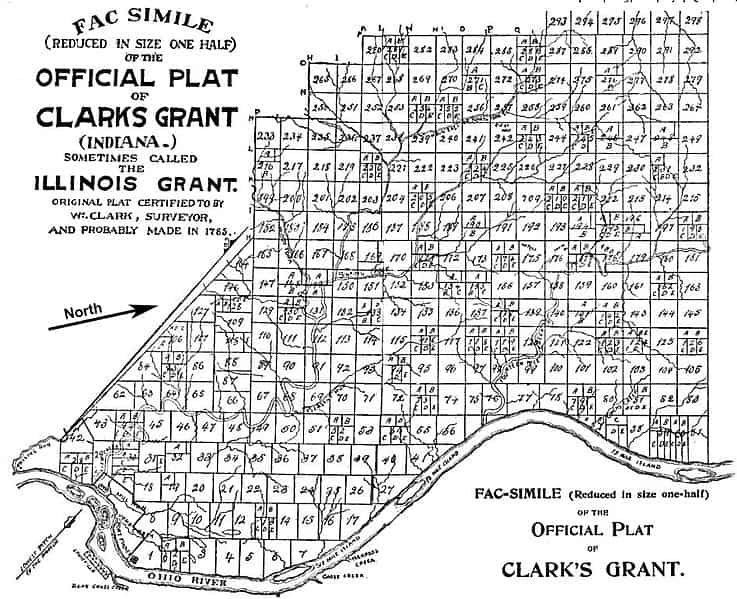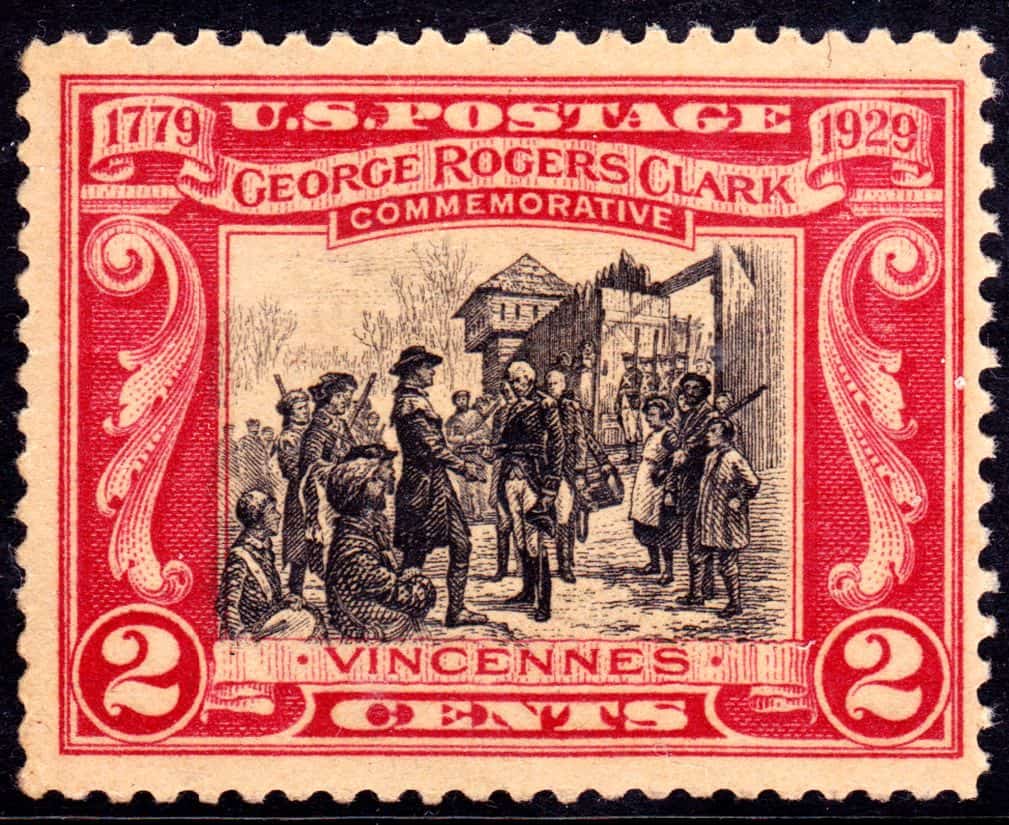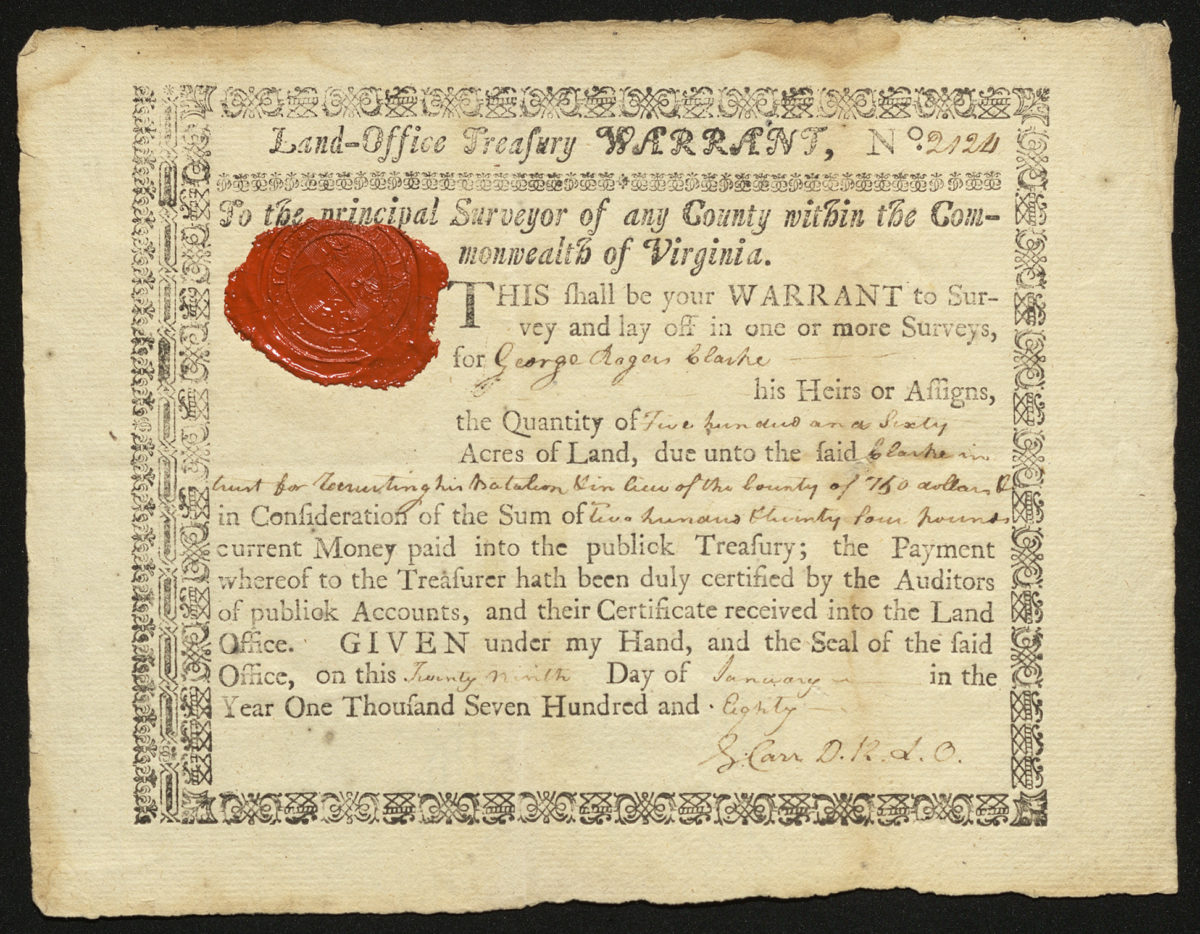
George Rogers Clark, Father of Louisville
George Rogers Clark received three hundred warrants for land in payment for his contributions to the war for American independence. This land became known as “Clark’s Grant” and was situated in southeastern Indiana near present day Louisville; Clark has been nicknamed the “Father of Louisville.”
Header Image: Clark’s Grant, the three hundred land plots Clark received in compensation for his military service; courtesy Wikimedia Commons [1].
“I have given the United States half the territory they possess, and for them to suffer me to remain in poverty, in consequence of it, will not redound much to their honor hereafter.”

A postage stamp commemorating Clark’s victory at Fort Sackville; courtesy Wikimedia Commons
This is a Land-Office Treasury Warrant from the Commonwealth of Virginia, for five hundred and sixty acres of land, dating from 1780. These warrants were historically used to patent land in Kentucky and the Old Northwest Territory. While this certificate states “Virginia,” the land in fact was located in Indiana, just to the north of present-day Louisville, Kentucky. This is one of three hundred warrants which were issued to George Rogers Clark, the founder of Louisville, Kentucky, and older brother of William Clark of the Lewis and Clark Expedition.
Clark, acting as lieutenant colonel in the Virginia militia, recruited a battalion of volunteers to fight in the American Revolutionary War. Clark led several campaigns, but most famously led the mid-winter march to Vincennes in 1779 that culminated in a surprise attack on Fort Sackville.
The march has been memorialized in paintings, postage stamps, and even one of the most recent U.S. quarters, which depicts Clark and his men resolutely marching through flooded plains toward Fort Sackville. George Rogers Clark led his troops well, suffering no loss of life among his men, and recapturing the fort from British forces after a brief siege. (Scroll down to continue reading about George Rogers Clark below)
General George Washington celebrated Clark’s success and recognized that Clark had achieved this victory without support from the army, in terms of either men or funds. Clark had in fact borrowed heavily to finance his campaigns, but due to poor record keeping of the era, he was denied reimbursement from the government. As you can read on this warrant, the Virginia Land Office awarded Clark three hundred land warrants in compensation “for recruiting his batalion & in lieu of the bounty of 750 dollars.” Unfortunately Clark, increasingly saddled with debt and alcoholism throughout his life, had to transfer or deed all of his lands to friends and family to avoid it being seized by his creditors.
Despite his financial difficulties, Clark is still fondly remembered as a hero of the American Revolutionary War. George Rogers Clark National Park was created on site of the Vincennes March and Fort Sackville—along the Illinois-Indiana border—and features a neoclassical rotunda with murals and statues memorializing Clark and his forces.
 University of Nevada, Reno
University of Nevada, Reno
